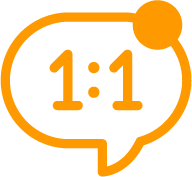What Assessment Mental Health Experts Want You To Know
페이지 정보
작성자 Bruce Margarot 작성일 25-02-12 07:12 조회 258 댓글 0본문
Assessment Mental Health
Assessment of mental health is an exhaustive evaluation of a patient's symptoms, thoughts and feelings. It can be done through questionnaires, interviews or tests.
 When looking at assessment instruments for the same disorder, there was a distinct variation in the format of the questions. For instance, the proportion of questions that focused on emotional physical, cognitive or trigger themes was different between the tools.
When looking at assessment instruments for the same disorder, there was a distinct variation in the format of the questions. For instance, the proportion of questions that focused on emotional physical, cognitive or trigger themes was different between the tools.
Symptoms
If you're being evaluated for mental health issues Your doctor will ask questions regarding the severity of your symptoms and how they affect your life. You'll also be asked about your family history, any previous mental health issues, and your current medications. It is essential that your doctor be aware of all the prescription and non-prescription medications such as vitamins, herbal supplements, and other supplements you're taking since they may cause side effects similar to the symptoms of a mental disorder.
Your doctor will look at your appearance and examine your behavior. They'll look at things like how well you speak to yourself and whether you make eye contact, as well as your mood. They'll also look at how much energy you've got and how you interact with other people. They'll ask about any past issues, such as thoughts of suicide or suicidal attempt. They'll also inquire if you've tried to cope with your symptoms by yourself or with the help of others.
The assessment could include a physical examination to rule out any medical conditions that may be the cause of your symptoms. It will typically involve the use of a blood test and urine test. The blood test is usually taken from your arm and may feel like a irritation or a pinch. The urine test will be an easy pee in a cup. If you are concerned about these tests, it's best to consult with your therapist prior to the appointment. They will make the procedure as easy as is possible.
Mental status examination
A doctor who can recognize and explain the mental state examination of a patient will be well on the way to a traditional psychiatric diagnosis within the framework of Diagnostic and Statistical Manual of Mental Disorders, Fourth Edition Text Revision (DSM-IV). The MSE includes the observation of general appearance and behavior, as well as any unusual or bizarre beliefs or perceptions, mood, and all aspects of cognition (eg attention, orientation and memory, etc.).
A well-constructed MSE can yield important information. It can reveal a disheveled appearance, with no washing, that is indicative of schizophrenia or mania, or a self-denial behavior that could be indicative of bipolar disorder or depression. It can also elicit responses to hypothetical scenarios like "What do you think you would do if you came across an unopened wallet on the street?" This can help to understand the patient's social judgment and thought process.
MSEs can be conducted in a variety of ways depending on the examiner’s expertise and training. For instance, asking a patient to spell the word world forward and backwards, or to subtract serial 7s from 100 can be used to measure attention. Patients may be asked to draw a clock or house or even interlocking pentagons, to test spatial perception. This could also reveal micrographia, persistent, impersistence and hemispatial neglect. Other tests could be recommended in light of the MSE results. These include tests in the laboratory which identify medical conditions that can be causing or susceptible to reversal, brain imaging (eg. computed tomography or magnetic resonance imaging) and an appointment with psychiatrist for an official evaluation and consultation. A thorough MSE can provide important clues to diagnose and assist in determining the best treatment for the patient. When performing a MSE for a child, it is essential to place the test in the context of a more comprehensive intake assessment and to interpret the results with caution and within the framework of developmental development.
Interviews
Interviews are an essential part of mental health assessments. The interview may be unstructured or structured, and can cover a many different subjects. A mental health professional could inquire about your family background and if you've ever had any illnesses or injuries. They may also inquire about the substances you use which includes nonprescription drugs such as herbal supplements and teas. They may be interested to know if have been dealing with stress and what strategies you use.
Assessment of cognitive functioning, insight and judgment are also a part of the mental health assessment. The ability to make clear decisions and think clearly is the main aspect of the mental health assessment. The second aspect is the ability of a person to see the real world, resolve issues, and understand the challenges. The last component is insight. It is the ability of a person to gain an understanding of their situation and the reasons behind their visit to a psychiatrist.
Mood and affect are also significant aspects of the mental state exam. They require direct questioning and observing a person's body language, facial expressions, posture, and voice tone. These indicators of mood could aid in determining if a patient is experiencing a depressive episode or an anxiety episode.
Thought content can be assessed by assessing mood and emotional state. This can be accomplished by direct questioning or observation of the patient's thoughts. Thought content can be used to determine if the patient is experiencing auditory, visual or tactile hallucinations, a sense of their status or fear from others as well as obsessions and compulsions and fears. Several different types of assessments can be used to determine these symptoms, such as questionnaires and rating scales.
Tests
Tests help mental health assesment health practitioners assess a patient's cognitive performance and personality characteristics. They can be used to determine the diagnosis or pinpoint areas of concern. These tools can be comprised of oral and written tests and may be either formal or informal. Therapists in addition to traditional tests using paper and pen employ digital tools like Great Plains Health, a popular anxiety inventory.
These tests can reveal the individual's personality and their thinking, including their ability to manage stress. They can also be helpful in assessing an individual's psychological well-being and their ability to solve issues. The most important consideration when choosing an assessment instrument is its reliability, validity, and sensitivity.
The type of test will differ depending on the specific issue and may include a mini mental state examination (MSE) to determine the level of consciousness a person has and how they respond to questions about their past and present. Other tests include a cognitive assessment that looks for indicators of mental illness, such as hallucinations and delusions, obsessions ritualistic behavior, compulsions, anxiety or thoughts of self-harm or suicide.
Mental health tests are used to diagnose private mental health diagnosis disorders such as anorexia, depression, schizophrenia, or bulimia. They can also be used to determine risk factors for these conditions such as family history or environmental factors. They can be difficult to interpret. Test scores can be affected by factors like age, diet or sleep habits, or exercise. The kind of test, as well as the number of questions can also affect the results. For instance, multiple choice tests can be misleading and do not always give a true image of the test taker's capabilities.
Checklists
Mental health assessments are an essential element in diagnosing and treating mental disorders. These assessments are typically conducted by mental health professionals like psychiatrists or licensed professional counselors. The assessment process consists of examining symptoms as well as conducting an interview and administering tests. It is essential to utilize accurate and current tools for assessing private Mental Health diagnosis health to ensure that patients receive the correct treatment in time. If not, patients could be in danger of complications, such as delay in treatment or misdiagnosis.
Checklists and tests are the most common tools used to determine the mental health assessment test health of an individual. They can be informal or formal, standardized or non-standardized, self-report or therapist-administered, and can be used at any point in the counseling process. In addition to psychological tests and other forms of assessing mental health include laboratory and physical tests. These can be used to determine physical ailments that could be causing symptoms. These tests can also be used to determine the severity of a psychiatric disorder.
Psychometric testing can include a variety of kinds of checklists and questionnaires. They are used to evaluate the personality, cognitive and behavioral performance. These tests require special training to conduct and interpret. They are useful in identifying psychological disorders such as depression and anxiousness. They can also help detect other disorders such as schizophrenia and bipolar disorder.
The process of assessing can be difficult, especially when dealing with a person who is at risk of taking their own life. It is important to know how to recognize the signs and symptoms of suicide, to take steps to prevent it. Suicide is a major cause of deaths, and it is essential to guard against harm. A tool known as the Mental Health Environment of Care Checklist has been shown to decrease the number of suicides occurring in mental health hospitals within the Veterans Affairs (VA) system.
Assessment of mental health is an exhaustive evaluation of a patient's symptoms, thoughts and feelings. It can be done through questionnaires, interviews or tests.
 When looking at assessment instruments for the same disorder, there was a distinct variation in the format of the questions. For instance, the proportion of questions that focused on emotional physical, cognitive or trigger themes was different between the tools.
When looking at assessment instruments for the same disorder, there was a distinct variation in the format of the questions. For instance, the proportion of questions that focused on emotional physical, cognitive or trigger themes was different between the tools.Symptoms
If you're being evaluated for mental health issues Your doctor will ask questions regarding the severity of your symptoms and how they affect your life. You'll also be asked about your family history, any previous mental health issues, and your current medications. It is essential that your doctor be aware of all the prescription and non-prescription medications such as vitamins, herbal supplements, and other supplements you're taking since they may cause side effects similar to the symptoms of a mental disorder.
Your doctor will look at your appearance and examine your behavior. They'll look at things like how well you speak to yourself and whether you make eye contact, as well as your mood. They'll also look at how much energy you've got and how you interact with other people. They'll ask about any past issues, such as thoughts of suicide or suicidal attempt. They'll also inquire if you've tried to cope with your symptoms by yourself or with the help of others.
The assessment could include a physical examination to rule out any medical conditions that may be the cause of your symptoms. It will typically involve the use of a blood test and urine test. The blood test is usually taken from your arm and may feel like a irritation or a pinch. The urine test will be an easy pee in a cup. If you are concerned about these tests, it's best to consult with your therapist prior to the appointment. They will make the procedure as easy as is possible.
Mental status examination
A doctor who can recognize and explain the mental state examination of a patient will be well on the way to a traditional psychiatric diagnosis within the framework of Diagnostic and Statistical Manual of Mental Disorders, Fourth Edition Text Revision (DSM-IV). The MSE includes the observation of general appearance and behavior, as well as any unusual or bizarre beliefs or perceptions, mood, and all aspects of cognition (eg attention, orientation and memory, etc.).
A well-constructed MSE can yield important information. It can reveal a disheveled appearance, with no washing, that is indicative of schizophrenia or mania, or a self-denial behavior that could be indicative of bipolar disorder or depression. It can also elicit responses to hypothetical scenarios like "What do you think you would do if you came across an unopened wallet on the street?" This can help to understand the patient's social judgment and thought process.
MSEs can be conducted in a variety of ways depending on the examiner’s expertise and training. For instance, asking a patient to spell the word world forward and backwards, or to subtract serial 7s from 100 can be used to measure attention. Patients may be asked to draw a clock or house or even interlocking pentagons, to test spatial perception. This could also reveal micrographia, persistent, impersistence and hemispatial neglect. Other tests could be recommended in light of the MSE results. These include tests in the laboratory which identify medical conditions that can be causing or susceptible to reversal, brain imaging (eg. computed tomography or magnetic resonance imaging) and an appointment with psychiatrist for an official evaluation and consultation. A thorough MSE can provide important clues to diagnose and assist in determining the best treatment for the patient. When performing a MSE for a child, it is essential to place the test in the context of a more comprehensive intake assessment and to interpret the results with caution and within the framework of developmental development.
Interviews
Interviews are an essential part of mental health assessments. The interview may be unstructured or structured, and can cover a many different subjects. A mental health professional could inquire about your family background and if you've ever had any illnesses or injuries. They may also inquire about the substances you use which includes nonprescription drugs such as herbal supplements and teas. They may be interested to know if have been dealing with stress and what strategies you use.
Assessment of cognitive functioning, insight and judgment are also a part of the mental health assessment. The ability to make clear decisions and think clearly is the main aspect of the mental health assessment. The second aspect is the ability of a person to see the real world, resolve issues, and understand the challenges. The last component is insight. It is the ability of a person to gain an understanding of their situation and the reasons behind their visit to a psychiatrist.
Mood and affect are also significant aspects of the mental state exam. They require direct questioning and observing a person's body language, facial expressions, posture, and voice tone. These indicators of mood could aid in determining if a patient is experiencing a depressive episode or an anxiety episode.
Thought content can be assessed by assessing mood and emotional state. This can be accomplished by direct questioning or observation of the patient's thoughts. Thought content can be used to determine if the patient is experiencing auditory, visual or tactile hallucinations, a sense of their status or fear from others as well as obsessions and compulsions and fears. Several different types of assessments can be used to determine these symptoms, such as questionnaires and rating scales.
Tests
Tests help mental health assesment health practitioners assess a patient's cognitive performance and personality characteristics. They can be used to determine the diagnosis or pinpoint areas of concern. These tools can be comprised of oral and written tests and may be either formal or informal. Therapists in addition to traditional tests using paper and pen employ digital tools like Great Plains Health, a popular anxiety inventory.
These tests can reveal the individual's personality and their thinking, including their ability to manage stress. They can also be helpful in assessing an individual's psychological well-being and their ability to solve issues. The most important consideration when choosing an assessment instrument is its reliability, validity, and sensitivity.
The type of test will differ depending on the specific issue and may include a mini mental state examination (MSE) to determine the level of consciousness a person has and how they respond to questions about their past and present. Other tests include a cognitive assessment that looks for indicators of mental illness, such as hallucinations and delusions, obsessions ritualistic behavior, compulsions, anxiety or thoughts of self-harm or suicide.
Mental health tests are used to diagnose private mental health diagnosis disorders such as anorexia, depression, schizophrenia, or bulimia. They can also be used to determine risk factors for these conditions such as family history or environmental factors. They can be difficult to interpret. Test scores can be affected by factors like age, diet or sleep habits, or exercise. The kind of test, as well as the number of questions can also affect the results. For instance, multiple choice tests can be misleading and do not always give a true image of the test taker's capabilities.
Checklists
Mental health assessments are an essential element in diagnosing and treating mental disorders. These assessments are typically conducted by mental health professionals like psychiatrists or licensed professional counselors. The assessment process consists of examining symptoms as well as conducting an interview and administering tests. It is essential to utilize accurate and current tools for assessing private Mental Health diagnosis health to ensure that patients receive the correct treatment in time. If not, patients could be in danger of complications, such as delay in treatment or misdiagnosis.
Checklists and tests are the most common tools used to determine the mental health assessment test health of an individual. They can be informal or formal, standardized or non-standardized, self-report or therapist-administered, and can be used at any point in the counseling process. In addition to psychological tests and other forms of assessing mental health include laboratory and physical tests. These can be used to determine physical ailments that could be causing symptoms. These tests can also be used to determine the severity of a psychiatric disorder.
Psychometric testing can include a variety of kinds of checklists and questionnaires. They are used to evaluate the personality, cognitive and behavioral performance. These tests require special training to conduct and interpret. They are useful in identifying psychological disorders such as depression and anxiousness. They can also help detect other disorders such as schizophrenia and bipolar disorder.
The process of assessing can be difficult, especially when dealing with a person who is at risk of taking their own life. It is important to know how to recognize the signs and symptoms of suicide, to take steps to prevent it. Suicide is a major cause of deaths, and it is essential to guard against harm. A tool known as the Mental Health Environment of Care Checklist has been shown to decrease the number of suicides occurring in mental health hospitals within the Veterans Affairs (VA) system.









